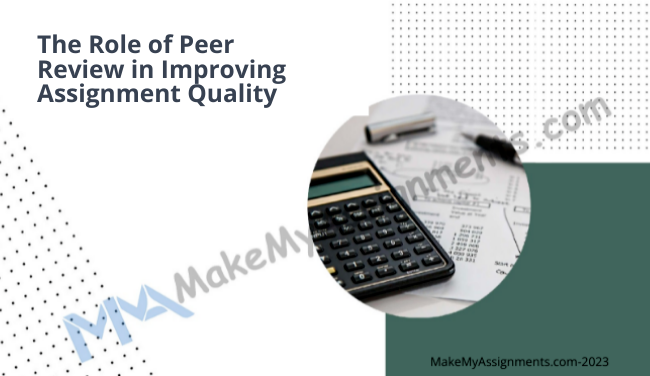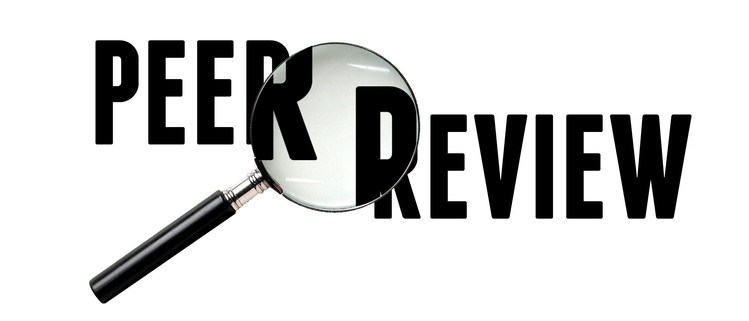
The Role of Peer Review in Improving Assignment Quality
In the realm of education, assignments are a cornerstone of learning, offering students the opportunity to delve deeper into their subjects, apply theoretical knowledge to practical situations, and develop critical thinking skills. However, the effectiveness of assignments can be significantly enhanced by incorporating a collaborative and evaluative process known as peer review. Peer review not only promotes active learning but also contributes to improving assignment quality through diverse perspectives and constructive feedback.

Understanding Peer Review
Peer review involves students assessing the work of their fellow classmates, evaluating its quality, and providing constructive feedback. This process mirrors the professional practice of subjecting academic research and scholarly articles to review by experts in the field before publication. In an educational context, peer review encourages students to think critically about their own work and that of their peers.
Benefits of Peer Review
- Diverse Perspectives: Every student brings their own unique insights, experiences, and viewpoints to the table. Peer review exposes authors to a range of perspectives they might not have considered, enriching the depth and breadth of their assignments.
- Active Learning: Engaging in the peer review process requires students to analyze and evaluate others’ work, deepening their understanding of the subject matter. This active participation enhances their learning experience beyond passive reading and listening.
- Constructive Feedback: Peer reviewers offer suggestions for improvement, pointing out strengths and areas that need enhancement. This feedback is often more relatable and easier to grasp, as it comes from peers who are navigating similar learning journeys.
- Skill Development: Through peer review, students develop skills in critical analysis, communication, and providing constructive criticism. These skills are not only crucial in an academic setting but are also highly valuable in professional environments.
- Reduction of Bias: Since assignments are evaluated by multiple peers, the grading process becomes more objective and fair. This can help mitigate any potential biases that individual instructors might inadvertently introduce.
Implementing Effective Peer Review
- Clear Guidelines: Provide clear guidelines for the peer review process, detailing the criteria to evaluate assignments. This ensures consistency and fairness in assessments.
- Anonymity: Consider implementing anonymous peer review to eliminate any bias related to student identities. This encourages honest and impartial feedback.
- Structured Feedback: Encourage reviewers to provide specific feedback, focusing on both strengths and areas needing improvement. This helps authors understand what they’re doing well and what aspects require attention.
- Rubrics: Provide rubrics or scoring guidelines to help reviewers assess assignments systematically. Rubrics provide a clear framework for evaluation, making the process more objective.
- Feedback Training: Offer resources or workshops on giving effective feedback. Not all students might be accustomed to providing constructive criticism, so guidance can improve the quality of feedback.
Challenges and Considerations
While peer review offers numerous benefits, there are challenges to consider. Students might lack confidence in their assessment abilities, and there’s a possibility of receiving inaccurate feedback. To address this, instructors can play an active role in moderating the process, guiding discussions, and ensuring the feedback is helpful and aligned with learning objectives.
Peer review is a dynamic tool that empowers students to actively participate in their learning journey. By incorporating diverse perspectives and encouraging constructive feedback, it significantly enhances the quality of assignments. This process not only nurtures critical thinking and analytical skills but also prepares students for the collaborative nature of real-world challenges. As education evolves to embrace interactive and participatory approaches, peer review stands out as a pivotal technique in fostering well-rounded and high-quality learning experiences.


